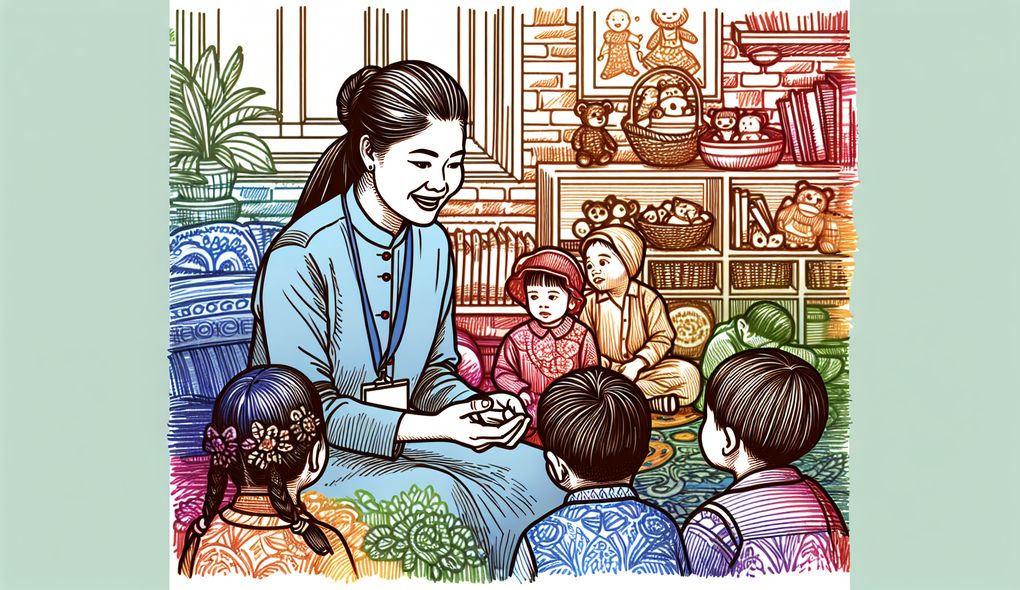Describe a time when you had to handle a challenging case involving multiple complexities. How did you approach it?
SENIOR LEVEL

Sample answer to the question:
One challenging case I had to handle involved a child who had suffered from neglect and abuse and was placed in foster care. The case had multiple complexities, including a language barrier with the child and the need for specialized mental health services. To approach this case, I first conducted a thorough assessment of the child's needs and worked closely with the foster family to ensure a safe and supportive environment. I also arranged for an interpreter to facilitate communication with the child and collaborated with mental health professionals to provide the necessary therapy. Additionally, I coordinated with community organizations to secure resources for the child's cultural and linguistic needs. Overall, my approach was to prioritize the child's safety and well-being while addressing the unique complexities of the case.
Here is a more solid answer:
One challenging case I had to handle involved a child who had suffered from neglect and abuse, presenting multiple complexities. As the lead child welfare specialist, I first assembled a multidisciplinary team comprising mental health professionals, translators, and legal experts. Together, we conducted a comprehensive assessment of the child's needs and developed a holistic care plan. To address the language barrier, we arranged for a qualified interpreter who could effectively communicate with the child and facilitate therapy sessions. I also fostered effective communication and collaboration between the foster family and the child's biological family, ensuring their involvement in the reunification process. Furthermore, I utilized my crisis intervention skills to manage high-stress situations and conflict resolution techniques to address any conflicts that arose during the case. By leveraging my expertise in case management software, I meticulously documented the progress of the case and regularly communicated updates to relevant stakeholders. Throughout the process, I prioritized the child's well-being, empathy, and cultural sensitivity, considering their unique background and needs.
Why is this a more solid answer?
The solid answer provides specific examples and details of how the candidate approached the challenging case, showcasing their leadership and team management skills, communication and interpersonal skills, sound judgment in high-stress situations, crisis intervention and conflict resolution abilities, case management and organizational skills, as well as empathy and cultural sensitivity. However, it could benefit from further elaboration on the candidate's expertise in crisis intervention and conflict resolution, as well as their ability to make sound judgments.
An example of a exceptional answer:
One challenging case I handled as a senior child welfare specialist involved a child who had suffered severe neglect and abuse, resulting in complex emotional and behavioral issues. Understanding the urgency and gravity of the situation, I immediately took charge and formed a multidisciplinary team comprised of mental health professionals, child advocates, and law enforcement officers. As the team leader, I devised a comprehensive action plan, assigning specific roles and responsibilities to each team member to ensure efficient collaboration. Recognizing the need for specialized mental health services, I swiftly arranged for an expert trauma-focused therapist who could work one-on-one with the child. To overcome the language barrier, I tirelessly searched for a bilingual therapist who could not only communicate effectively but also understand and appreciate the child's cultural heritage. Additionally, I engaged the child's school counselor and teachers to provide support and accommodations within the educational setting. Throughout the case, I maintained open lines of communication with all stakeholders, including the child's biological family, foster family, and external service providers. By consistently evaluating the progress of the case, I anticipated potential challenges and proactively addressed them, displaying sound judgment in high-stress situations. Furthermore, I utilized crisis intervention techniques to manage crises effectively, providing stability and support for the child. As an advocate for the child's rights and well-being, I provided expert testimony during court proceedings, ensuring that the child's voice was heard and their best interests were protected. By continuously updating my knowledge on child welfare regulations and attending relevant training sessions, I maintained a high level of expertise in the field. Ultimately, my approach to this challenging case was marked by exceptional leadership, comprehensive case management, and unwavering commitment to the child's safety, well-being, and cultural sensitivity.
Why is this an exceptional answer?
The exceptional answer goes above and beyond in providing specific examples and details of how the candidate approached the challenging case, showcasing their exceptional leadership and team management skills, communication and interpersonal skills, sound judgment in high-stress situations, crisis intervention and conflict resolution abilities, case management and organizational skills, as well as empathy and cultural sensitivity. It also highlights their advocacy for the child's rights and their commitment to continuous professional growth. The answer effectively demonstrates the candidate's ability to handle complex cases and the positive impact they have on the lives of children and their families.
How to prepare for this question:
- Reflect on your past experiences, focusing on cases that involved multiple complexities and required your expertise in child welfare.
- Think about the challenges you faced in those cases and how you approached them. Consider your decision-making process, collaboration with other professionals, crisis intervention techniques, and cultural sensitivity.
- Prepare specific examples and anecdotes to illustrate your approach and highlight the positive outcomes you achieved for the children and families involved.
- Highlight your leadership and team management skills, as well as your ability to make sound judgments in high-stress situations.
- Stay up to date with the latest child protection policies, regulations, and best practices in the field of child welfare.
What are interviewers evaluating with this question?
- Leadership and team management skills
- Communication and interpersonal skills
- Sound judgment in high-stress situations
- Crisis intervention and conflict resolution
- Case management and organizational skills
- Empathy and cultural sensitivity

